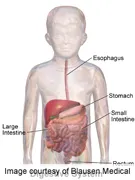 I found this article to be worth passing on. Reading it I thought maybe, just maybe we're one step closer to a finding the autism brain gut connection that won't be discredited. Nick's gut problems started hours after he was born, and years before he began showing signs of autism. From an inability to hold down milk to suffering from constant diarrhea for 2 years Nick was in constant pain. He cried so much he herniated his belly button before he was six months old, and no one could offer any answers. I hope this information gets us closer to a place where our kids don't have to suffer, with no relief.
I found this article to be worth passing on. Reading it I thought maybe, just maybe we're one step closer to a finding the autism brain gut connection that won't be discredited. Nick's gut problems started hours after he was born, and years before he began showing signs of autism. From an inability to hold down milk to suffering from constant diarrhea for 2 years Nick was in constant pain. He cried so much he herniated his belly button before he was six months old, and no one could offer any answers. I hope this information gets us closer to a place where our kids don't have to suffer, with no relief.
*******
Bacteria Levels in Gut Tied to Autism in Kids?
Study compared digestive tract samples from 40 children
By Robert Preidt
HealthDay Reporter
WEDNESDAY, July 3 (HealthDay News) -- A link may exist between autism and bacteria in a child's digestive tract, a small new study suggests.
Researchers analyzed gut bacteria in fecal samples from 20 children with autism and 20 children without the disorder. The children with autism had significantly fewer types of gut bacteria, which potentially could make them more vulnerable to harmful bacteria.
The study also found that children with autism had significantly lower amounts of three types of important gut bacteria.
Autism, a neurodevelopmental disorder that can range from mild to severe, affects social and communication skills.
The new study appears July 3 in the journal PLoS One.
"One of the reasons we started addressing this topic is the fact that autistic children have a lot of [gastrointestinal] problems that can last into adulthood," study leader Rosa Krajmalnik-Brown, a researcher at Arizona State University's Biodesign Institute, said in a university news release. "Studies have shown that when we manage these problems, their behavior improves dramatically."
This type of research could lead to new ways to treat autism-associated gastrointestinal problems, and improve diagnosis, prevention and treatment of autism, the study authors said.
Previous research has shown that gut bacteria plays a role in a wide range of important functions, including digestion, controlling body weight, immune response regulation and the production of neurotransmitters that affect the brain and behavior.
Although this study showed a potential link between gut bacteria and autism, it did not prove a cause-and-effect relationship.
No comments:
Post a Comment